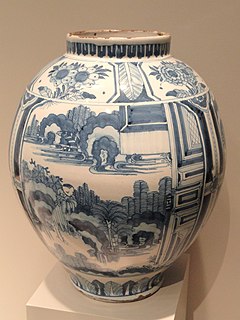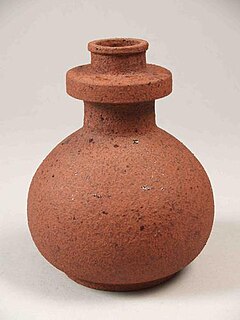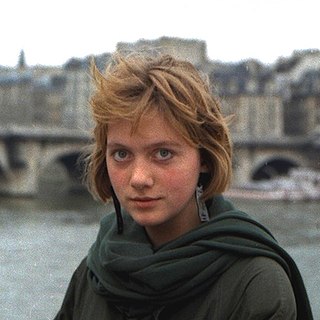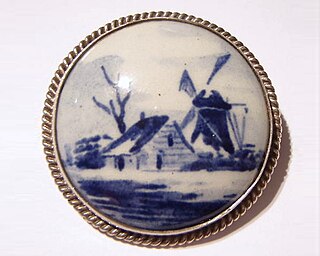Related Research Articles

Delft is a city and municipality in the province of South Holland, Netherlands. It is located between Rotterdam, to the southeast, and The Hague, to the northwest. Together with them, it is part of both the Rotterdam–The Hague metropolitan area and the Randstad.

Delftware or Delft pottery, also known as Delft Blue or as delf,, is a general term now used for Dutch tin-glazed earthenware, a form of faience. Most of it is blue and white pottery, and the city of Delft in the Netherlands was the major centre of production, but the term covers wares with other colours, and made elsewhere. It is also used for similar pottery, English delftware.
Thierry Veltman is a Dutch painter, sculptor, ceramist and art educator. He focuses in particular on figures and still life.

Academie Minerva is a Dutch art academy.

Johannes Jacobus (Jan) van der Vaart was an influential Dutch ceramist from the 20th century, known as founder of the abstract-geometric ceramics in the Netherlands.

Jan de Rooden was a Dutch ceramist and sculptor, who worked in Nijmegen, Paris, and Amsterdam.

Cornelis (Cor) Dam was a Dutch artist, who has been active as sculptor, painter, illustrator and ceramist.
Theodorus Antonius Hubertus Maria (Theo) Dobbelman was a Dutch sculptor, ceramist and painter.

Johanna Greta (Hannie) Mein was a Dutch ceramist.

Henk Trumpie was a Dutch ceramist and sculptor.

Johan Gerard van Loon was a Dutch ceramist and textile artist.

Vilma Maria Helena Henkelman is a Dutch sculptor, ceramist, and photographer.
Emmy van Deventer-Molt was a Dutch ceramist, and lecturer at the Gerrit Rietveld Academie, and the AKV St. Joost.

Wietske van Leeuwen is a Dutch ceramist, who lives and works in Monnickendam. Her works are constructed in a baroque style, with shells and fruit as recurring motifs.

Johanna Jacoba (Johnny) Rolf is a Dutch ceramist, drawing artist and sculptor.

Alida "Lies" Meijers-Cosijn was a Dutch ceramist. Her work is described as "fairytale like and poetic, but also sometimes bizarre and realistic."

Delft Jewelry is the generic name for jewelry featuring Dutch (Netherlands) miniature Delftware medallions or brooch panels in a silver setting. Delft jewelry includes necklaces, pendants, earrings, brooches, bracelets, rings, and cufflinks. The Delft panels are usually made of pottery and decorated with a blue and white windmill landscape. The silver setting often has the form of silver filigree. Delft jewelry has been made in the Netherlands since c.1879. It flourished especially in the decades after WW2 as a result of demand from the Dutch tourist industry. That era saw the emergence of three specialist producers of Delft medallions. For most other Delftware factories however, brooch panels have been a relatively small side product.
Euphemia Hendrika Maria (Phemia) Molkenboer was a Dutch ceramist, furniture designer, draughtswoman and art teacher.

Gallery Terra Delft is an art gallery in Delft specialized in ceramics and ceramic art from contemporary national and international ceramists. It was founded in 1986.
References
- 1 2 3 Simone Haak; vrouw / Nederlands; monumentaal kunstenaar, beeldhouwer, keramist, at rkd.nl. Last update 2 March 2016.
- 1 2 3 4 Trudy van der Wees, "Simone Haak," at verhalenwiki.nl, last updated 22 July 2018.
- 1 2 Kitty Kilian, "10 jaar galerie Terra; Keramisch gezicht op Delft." NRC Handelsblad, 23 May 1996.
- ↑ Ankie Maessen et al (eds.). Ceramics – The Story of Thirty Years Terra Delft Gallery, Terra 30 jaar, 1986–2016. p. 4